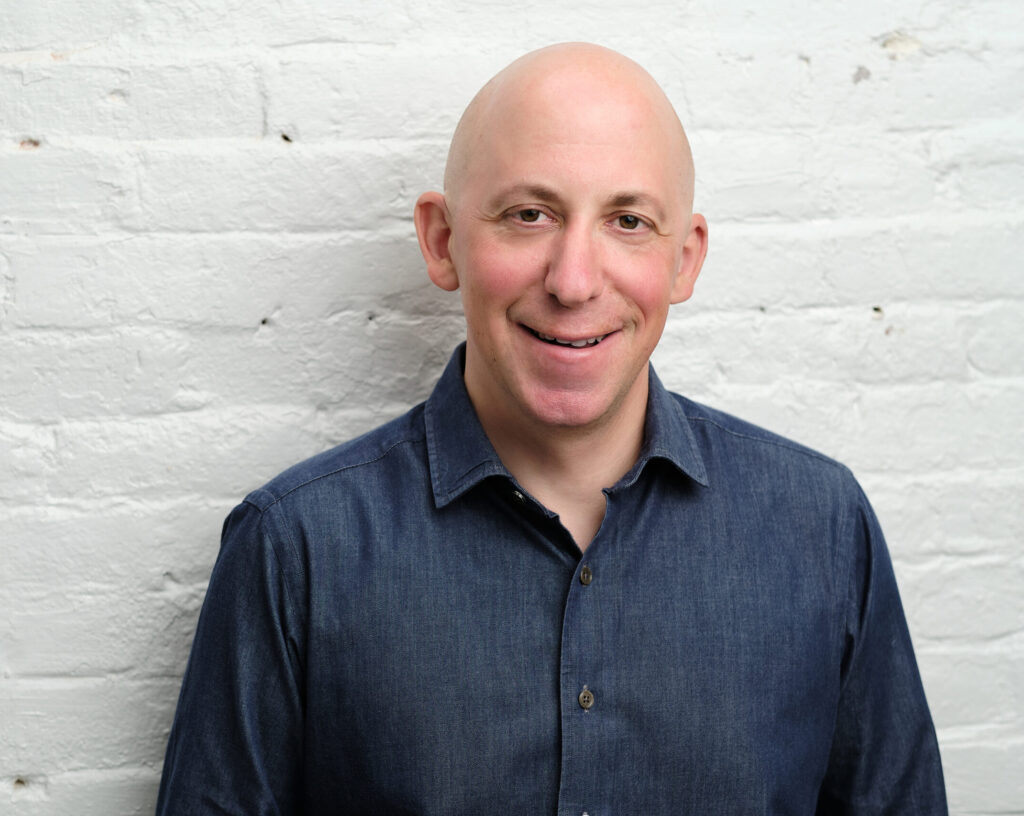
Deciens is derived from the Latin word for ten times, an apt name for the newest addition to the NVNG fund of funds. We had the opportunity to talk with managing partner Dan Kimerling for the latest installment in our “5 Questions With…” series.
to the NVNG fund of funds. We had the opportunity to talk with managing partner Dan Kimerling for the latest installment in our “5 Questions With…” series.
Q: Tell us a bit about Deciens.
DK: Deciens is an early-stage fund exclusively focused on investing in and supporting entrepreneurs building the next generation of financial services companies. We’ve been doing this now for about seven years and we’re on our third fund.
We have seven people. I’m based in Chicago and in New Mexico, but our team is all across the US and we have some colleagues in Europe as well.
There are two primary reasons we focus on financial services. One is experience. Before starting Deciens I built a fintech business called Standard Treasury and sold that to Silicon Valley bank and served on the executive team at the bank for a number of years. My partners Ishan and Vishal both have very deep financial services experience in capital markets and insurance respectively.
The team is really a bunch of financial services nerds. That’s what we know and, philosophically, we believe it’s important to know a lot about what you’re going to invest in.
The other reason is just how immense financial services is. Depending on the country it’s between 20-25% of GDP. It’s one of the largest industries in the world.
An example of one of our portfolio companies is, GlacierGrid (formerly Therma°), which is an energy financing business. What’s really interesting is that they work with Rite Hite in Wisconsin, a leader in manufacturing loading dock equipment, industrial doors and industrial curtain walls. One of the major sources of energy consumption is heating and cooling and HVAC and one of the major opportunities innovation opportunities in this space is actually with doors and windows.
So, a collaboration between GlacierGrid and Rite Hite makes sense. Rite Hite also happens to be a Limited Partner of NVNG’s and the connection is a great example of the network effect.
Q: Why are Deciens and NVNG a good fit?
DK: With lots of fund of funds, they invest in funds that give them broad based exposure to the venture market. They tend to be generalist and they build larger more diversified portfolios. Deciens takes the opposite approach. We’re very specialized in the industry we work in. We work exclusively with early-stage companies – really the earlier the better. We help companies in that the zero to one phase – that’s really what our what our special sauce is.
So, within the context of a fund of funds like NVNG, working with a firm like Deciens creates an opportunity for more specialization and to be in some contrast with some other funds in the NVNG portfolio.
Q: Any trends that you’re seeing now in in deal flow and starts in excess
DK: Anybody in the industry knows that we’re going through a bit of a downturn in venture capital right now. It is a highly cyclical industry and we’ve gone through a 12–13-year bull run. Now we’re in a kind of bear market cycle and that means that fewer venture funds are getting started and fewer exits are happening. The reality is that this too will change. If you just reflect upon the history of venture capital, and we try to be students of that history, you know that this kind of ebb and flow is just part of the business.
Q: What’s your take on the Midwest venture ecosystem right now?
DK: I think it’s getting better. Venture capital is a very odd beast because you know how the math works – you do 100 deals and 99 lose money and one pays out 300 to 1. As a portfolio you’re up 3X, but a lot of people tend to get very obsessed with the fact that you lose money on the 99. And I think this has actually hurt Midwestern venture capital. I think Midwestern venture capitalists have been more focused on the downside than on the upside.
That’s changed in the past five or so years with a new generation of Midwestern venture capitalists. I’m 38 and my peers, I think, embraced more of an assertive philosophy. Where I think the Midwest does really well is in private equity. The Midwest is a private equity powerhouse but with venture, I think it’s only in the last couple years that it’s finding its footing here.
And there’s another dynamic at play. People who are from the Midwest know how great of a place it is to live and to have a family and so on. They left, maybe for school or for work and moved to one of the coasts. Then they move back, and they bring their learnings and their networks home.
One of the things that I think has helped me in my venture career is having spent a lot of time in the Bay area and then leaving. In the Midwest and in the Southwest, you get a much better sense of how real people live and what are the problems that real people, institutions, organizations and communities have. I loved my time in the Bay area but it is definitely a bit of a bubble – like an echo chamber.
Q: Thinking about the work that you’ve done at Deciens what are you most proud of or passionate about?
DK: What we’re really passionate about is this idea that we could build a venture firm in a very artisanal way. We’re very focused on the quality of the relationships we have. As venture capital has become a bigger industry it’s become more transactional and more industrial in how it works. At Deciens, we’re really focused on an artisanal relational approach to venture capital and that’s really at the heart of what we do. I think that everyone who interacts with Deciens, as an investor or as a portfolio company executive, knows that we place a primacy on the relationship aspect of it as part of our operating model.